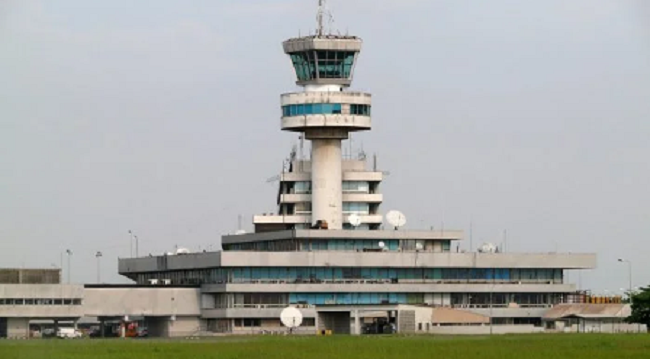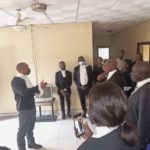The joint committees of aviation of the National Assembly have unanimously emphasized the importance of installing the safety-critical equipment, the mobile control towers in all geopolitical zones across the country.
The committees led by their Chairmen, Senator Smart Adeyemi for the Senate and Honourable Nnolim Nnaji for the lower chamber made the declaration while paying an oversight safety visit to the Nigerian Airspace Management Agency (NAMA) facilities at the Lagos airport.
The committees while making a case for the replication of the critical safety equipment across the zones, promised that in the next budget or in the supplementary budget the national assembly will make it possible for the procurement of more mobile towers, particularly for Enugu and Owerri airports.
Making his presentation to the committee members, the acting managing director NAMA, Mr Mathew Lawrence Pwajok, stressed the importance of the mobile control tower to operations and how it had helped save critical situations especially in the height of the COVID-19 pandemic.
”During the COVID we had a controller infected and we had to move outside the control tower to disinfect it and isolate people. The mobile control tower became strategic. It is very strategic as you cannot allow failure in air traffic management. Aircraft cannot stop mid-air. We have had a few disasters like the Cantonment disaster and when a flight needs to land somebody has to control it. There must be a contingency for all levels of services, air traffic management services must have a contingency, there must be a contingency for navigational equipment services. There must be a contingency for communication equipment, there must be a contingency for surveillance equipment and so on.”
IN CASE YOU MISSED THESE FROM NIGERIAN TRIBUNE
- ‘Officials initially offered to help but when the number of able-bodied citizens at the centre increased, they left us unattended to’
- Why Ogun Tops List Of ‘Yahoo Boys’ In Nigeria ― Governor Abiodun
- Police, Amotekun after criminals on Lagos-Ibadan expressway
- Suspected cannibal pays N500,000 for boy’s human organs, says ‘that’s my favourite meal, especially the throat’
- Court awards Nnamdi Kanu N1 billion over invasion of his home by military, asks FG to apologise
Speaking on the efficiency of having the category three Instrument Landing System (ILS) to the lawmakers, the NAMA MD explained that it would be easier for foreign airlines to key in unlike for domestic airlines that will require a lot of training and certification with approval granted by the Nigerian Civil Aviation Authority (NCAA).
Pwajok attributed one of the reasons for the importance of deploying the Category three Instrument Landing System to the airports with the input from others including airlines and the Federal Airports Authority of Nigeria (FAAN) to its ability to make zero visibility landing possible.
His words: “For domestic airlines, there might be a challenge but for international airlines, most of them are already operating the category 3 in other countries. So for us CAT 3 is achievable but the domestic airlines must be encouraged to get approval from the NCAA both for flight crew training and certification, air traffic as well as operating manuals specifications for those procedures for them to be Category three. It’s a low visibility operations procedure and it requires that NCAA approves any operator to do so.”
According to Pwajok, NAMA has already installed Category two ILS’ in ten airports which can bring down an aircraft at 300 metres adding that as a matter of policy, all local airports in Nigeria should have Category two while all international airports have Category three.
Presently, NAMA has four mobile control towers consisting of two new ones, two refurbished ones while two more are being expected.
The committee during the visit inspected the Air Traffic controllers Tower simulator, the mobile control towers as well as the Total Radar Coverage of Nigeria (TRACON) site at the Lagos airport.





